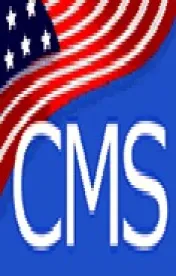Proposed rule would substantially increase rewards for fraud tips and enhance billing revocation authority.
On April 29, the Centers for Medicare & Medicaid Services (CMS) published a proposed rule (Proposed Rule) that would dramatically increase incentives for the reporting of information that leads to the recovery of funds related to Medicare fraud and abuse.[1] The Proposed Rule provides that anyone who supplies information under the Medicare Incentive Reward Program leading to the recovery of Medicare funds would potentially be eligible to receive up to $9.9 million. Under the current program, rewards to fraud tipsters are capped at $1,000. The Proposed Rule also enhances several other Medicare provider enrollment authorities, including Medicare billing revocation sanctions[2] for providers or suppliers demonstrating a pattern or practice of billing for services that do not meet Medicare requirements. Public comments on the Proposed Rule are due by June 28, 2013.
This proposal follows on the heels of the administration's announcement in early April that it would be creating a new funding opportunity to expand Senior Medicare Patrol (SMP) activities designed to educate Medicare beneficiaries on how to prevent, detect, and report Medicare fraud, waste, and abuse.[3]
Together, these two developments are likely to increase the number of tips fielded by CMS. Questions remain as to how CMS and its contractors will resource and investigate what will likely be an increased volume in complaints. Although this enhanced pot of tipster reward money may help Medicare detect and deter some of the brazen criminal fraud enterprises in healthcare, given how confusing the Medicare program is for providers and beneficiaries alike, this program could also result in a multitude of misguided reports of fraud.
Medicare Incentive Reward Program and Provider Enrollment
The Proposed Rule would revise the Medicare Incentive Reward Program provision in 42 C.F.R. § 420.405, increasing the potential reward amount for information that leads to a recovery of Medicare funds from 10% to 15% of the final amount collected. Specifically, the portion of the recovery on which CMS will pay a reward will be 15% of up to the first $66 million recovered. This means an individual could receive a reward of $9.9 million if CMS recovers $66 million or more. The current Medicare Incentive Reward Program caps the reward at $1,000, with CMS paying a reward on the first $10,000 it collects as a result of a fraud tip.
In conjunction with the increase in potential rewards, CMS is proposing to add a requirement that, upon notification of eligibility or when otherwise required by CMS, an individual must complete an attestation stating that (1) he or she is not participating and has not participated in the sanctionable conduct, (2) he or she is not otherwise ineligible to receive a reward, (3) the information he or she has furnished is accurate and truthful to the best of his or her knowledge, and (4) he or she acknowledges that knowingly failing to provide truthful information could subject him or her to potential civil and criminal liability. Per CMS, such an attestation may discourage individuals from furnishing baseless reports of sanctionable conduct. CMS is soliciting comments on whether the final rule should require the completion of an attestation, the timing of an attestation, and the content of any attestation. Persons likely to submit an attestation would include beneficiaries, medical providers, and healthcare administrative personnel who have been notified that they are eligible for a reward.
The Proposed Rule would strengthen certain Medicare provider enrollment provisions, allowing CMS to deny enrollment of providers who are affiliated with an entity that has unpaid Medicare debt, to deny or revoke billing privileges of entities with current managing employees who have had felony convictions in the last 10 years,[4] and to revoke billing privileges for abusing billing privileges.
The Proposed Rule specifically references providers or suppliers demonstrating a pattern or practice of billing for services that do not meet Medicare requirements such as, but not limited to, the requirement that the service be reasonable and necessary. This revocation reason thereby addresses overall billing patterns, rather than just individual claims. According to CMS, pattern-based revocation would place providers and suppliers on notice that they are under a legal obligation to always submit correct and accurate claims. "Providers and suppliers would know that a failure to do so may result in the revocation of their Medicare billing privileges if such failures establish a pattern of incorrect or inaccurate claims. . . . [W]e are proposing this authority so we may have the discretion to also revoke based on a pattern of inaccurate or erroneous claim submissions."[5] CMS is soliciting comments on what should qualify as a "pattern or practice" under the proposed change. It envisions "that a common—though by no means the only—scenario . . . [that] could apply would be one where a provider or supplier is placed on prepayment review and a significant number of its claims are denied for failing to meet medical necessity requirements over time."[6]
If enacted, such a shift in paradigm would bestow CMS with unprecedented discretion to revoke billing privileges. Prepayment review can often arise as a result of provider confusion that, with further education, often gets resolved. Permitting CMS contractors to revoke billing privileges with limited provider appeal rights raises many questions, not the least of which is the possible arbitrary, capricious, and inconsistent application of the new authority. The Proposed Rule suggests CMS contractors would not use billing revocation for isolated, sporadic, or innocent billing errors, but rather would reserve its use for situations that pose a risk to the Medicare Trust Fund.
SMP Expansion
Since 1997, the Administration on Aging (AoA) has funded SMP projects to recruit and train retired professionals and other senior citizens on how to recognize and report instances or patterns of healthcare fraud. The AoA is now providing approximately $7.3 million in additional funding for existing SMP grant projects to allow expansion. According to CMS, "[t]hese proposed changes will support the administration's comprehensive approach to program integrity, including the work being done with the Health Care Fraud Prevention and Enforcement Action Team [HEAT], a joint effort by HHS and the Department of Justice to fight health care fraud."[7]
Potential Implications
If the Proposed Rule is adopted, the incentives for would-be tipsters to report potential instances of Medicare fraud and abuse would be significantly enhanced. Coupled with the proposed expansion of the SMP program, entities providing care to Medicare beneficiaries and submitting claims to federal healthcare programs should expect higher levels of scrutiny of their practices related to the provision of services and billing activities. In addition, the likely increase in the number of tips to CMS raises the issue of a likely increase in demands on providers to cooperate with such investigations. In an era of multiple Zone Program Integrity Contracts (ZPIC), Medicare and Medicaid recovery auditor requests, and other Medicare contractor audits, the Proposed Rule's likely increase in fraud reports may place additional administrative burdens on providers who must respond to what will possibly be erroneous reports. Finally, providers should pay close attention to the proposed billing revocation authorities, as CMS contractors are using this sanction authority more frequently. Billing revocation effectively serves as a form of program payment exclusion with administrative appeal rights that, for many providers and suppliers, afford too few protections, too late (often after billing revocation has gone into effect). With a 10-year "look back period" and enormous CMS contractor discretion, the provider community should use this opportunity to scrutinize these new rules to ensure adequate due process protections and consistency.
[1]. Medicare Program; Requirements for the Medicare Incentive Reward Program and Provider Enrollment, 78 Fed. Reg. 25,013 (proposed Apr. 29, 2013) (to be codified at 42 C.F.R. pts. 405, 420, 424, 498), available here.
[2]. The current Medicare billing revocation regulations are found at 42 C.F.R. §§ 424.535 et seq.
[3]. In addition, on April 24, 2013, the U.S. Senate Committee on Finance released a report summarizing an overview of program integrity recommendations received by the committee. The stated purpose of the committee report was to provide a comprehensive overview of the policy and legislative recommendations received from 146 stakeholders in the healthcare community on ways to improve federal efforts to combat waste, fraud, and abuse in the Medicare and Medicaid programs. The Senate Committee on Finance intends to further examine the policy recommendations included in the report to determine whether additional legislative action will be pursued.
[4]. The current billing revocation authority allows revocation if the provider, supplier, or owner had certain felony convictions within the last 10 years.
[5]. Medicare Program Proposed Rule, supra note 1.
[6]. Id.
[7]. Press Release, U.S. Dep't of Health & Human Servs., HHS would increase rewards for reporting fraud to nearly $10 million (Apr. 24, 2013), available here.
Eric J. Knickrehm contributed to this article.




 />i
/>i

